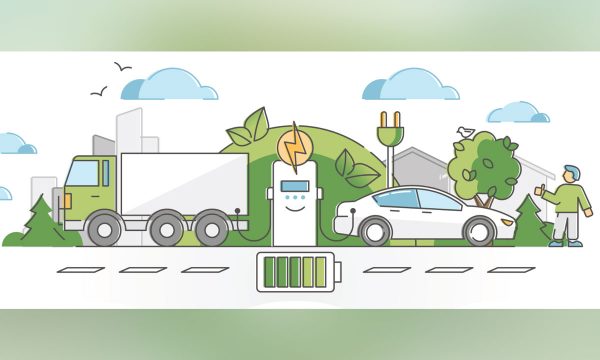The fate of Tesla could impact the playing field for other electric vehicle makers
With a nod to the Culture Club hit of the 1980s the modified title of the song and the title of this piece relates to the challenges currently facing Tesla and the company’s CEO, Elon Musk. As the expression goes, “Karma is a Bitch.”
I by no means condone the behaviour of those who are vandalizing Teslas, Tesla charging stations and… really anything affiliated with Tesla; however, it is understandable why so many Americans in particular are incensed enough to stoop to express their anger in illegal ways. But let’s parse out why so many seemed to have been pushed over the edge to commit such crimes.
Elon Musk has always been a bit of an eccentric and polarizing figure but at least half of all Americans were deeply offended that Musk spent more than a quarter of a billion dollars ($288 million) to help Donald Trump secure his second term as President of the United States.
To add insult to injury, it would appear that the President then rewarded Mr. Musk by making him a special advisor and putting him in charge of a new agency, the Department of Government Efficiency (DOGE), that he created by Executive Order on his first day in office on January 20th. According to that Executive Order the DOGE is a temporary department that will wind down on July 4th, 2026 – but I guess we’ll see about that.
As head of DOGE, Elon has done at least two obvious things which have taken aback both Americans, and those abroad.
First, on the face of it he has been responsible for the almost arbitrary shuttering of many government agencies and departments, along with the termination of thousands of American civil servant jobs without seemingly any consideration for the consequences of doing so.
While one can understand the need to right size the civil service of any government, there are ways you go about doing so that are considered, methodical and fair to those who are impacted.
He added salt to those wounds by a theatrical appearance at the Conservative Political Action Conference waving a chainsaw around and boasting about his desire to lay waste to bureaucracy.
While one can understand the need to right size the civil service of any government, there are ways you go about doing so that are considered, methodical and fair to those who are impacted. Mr. Musk makes this exercise look like a circus.
Next, Elon and his team had a temporary restraining order filed against them to prevent them from accessing any records with personally identifiable information at the Social Security Administration.
More recently this past week, it was alleged that Elon was to be briefed by the Pentagon on plans for a potential war with China. Setting aside for the moment the huge conflict of interest that exists because of Mr. Musk’s Tesla operations in China, on what planet does it make sense for any private citizen to be granted access to the Pentagon?
Further, a potentially larger conflict exists between Mr. Musk and the Pentagon itself, given the various contracts Space-X has with the Pentagon. Once this story broke, the plans for the Pentagon visit changed and media reports about the purpose of the meeting were denounced by both the President and Elon.
Also, let’s not forget Musk’s affinity for the far right party in Germany — combined with the “salute” gesture at a public event that were more than enough to offend the sensibilities of a lot of civil society.
All of this activity and the antics of Mr. Musk that have contributed to Tesla shares losing roughly half of their value since December combined with falling sales in most jurisdictions around the world. In January in Europe sales fell by 45 per cent while in Germany sales have declined by 76 per cent.
It remains to be seen what will become of Tesla given the growing “Tesla shame” owners are experiencing combined with the increased fear of having their vehicles vandalized. This is not a recipe for ongoing market success. But why should we care whether Tesla succeeds or fails?
Well, credit where credit is due (but more on credits later!). If it were not for Tesla the world would probably not be where it is along the path of transitioning from internal combustion engine vehicles to electric and electrified vehicles.
All of this activity and the antics of Mr. Musk that have contributed to Tesla shares losing roughly half of their value since December combined with falling sales in most jurisdictions around the world.
Despite the efforts of Nissan with the Leaf, General Motors with the Volt (followed by the Bolt) and the Mitsubishi iMEV, it was really Tesla that brought fully-electric vehicles into the mainstream and also demonstrated how the vehicle and charging infrastructure should work seamlessly.
However, as many readers would know, compliance with zero emissions vehicles programs in California and in the provinces of Quebec and BC as well as the Canadian federal ZEV mandate, have to a large extent, been structured around Tesla generating credits through the sale of its line up of electric vehicles, such that manufacturers struggling with compliance could purchase Tesla credits in order to ensure compliance.
That said, should Tesla sales continue to freefall for the reasons noted above (amongst others) the number of available credits for other companies to purchase to become compliant would dry up. If that is the case, what is a manufacturer to do to comply with the ZEV mandate?
Well, the answer might make environmentalists happy but it probably won’t make automobile consumers or governments reliant on the sales tax generated by the sale of cars and trucks happy.
That is because the only real other solution is for manufacturers to decrease the number of internal combustion engine vehicles they sell to meet the required target of EVs they are required to sell under the mandate.
Fewer cars available to be sold means higher prices — supply and demand — less selection, lower tax revenues and potentially lower levels of employment for those that earn a living in a new car dealership.
This is something the auto industry has been warning about for some time now.
To avoid this untenable situation, the federal, Quebec and BC ZEV mandates need to be paused and reconsidered, especially given the current trade war between Canada and the United States where Canada is considering applying retaliatory tariffs to EVs imported from the United States.
This would make already expensive EVs that much less affordable for Canadians. This can’t be the outcome that anyone contemplated so, our message is clear: Let’s pause the mandates and figure out better ways to achieve federal and provincial emissions reduction goals.













